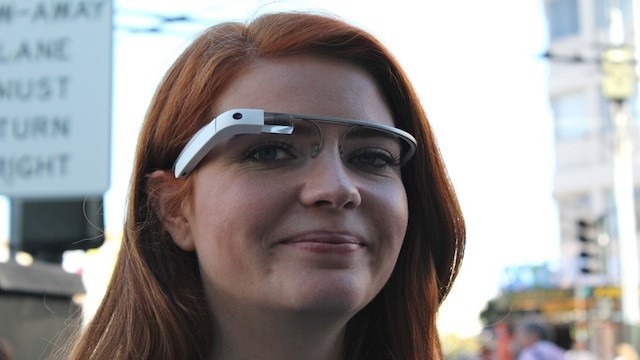Maninthemirror
Banned
Live Blog here:
http://live.theverge.com/tim-cook-d11-liveblog/
the Interesting stuff:
Still live
http://live.theverge.com/tim-cook-d11-liveblog/
the Interesting stuff:
Q: What do you want from Samsung?
Tim: Well, I'm not negotiating this evening. I don't like it any more than I did last year. But I don't like copying. This is a values thing.
Walt: Let's talk about control. There's a lot of talk about open versus closed. Facebook did Facebook Home, which hasn't done very well. Eric Schmidt said it's great, it's fine. I understand that they came and talked to you about it, and Apple wouldn't let anyone take over the lock screen. Your keyboard and your recognition, predictive typing and all that stuff, hasn't kept pace with Android. They allow other people to make that technology, third parties can give you a choice. Have you given any thought to a little bit less control?
Tim: Yeah, of course. On the general topic of opening up APIs, I think you'll see us open up more in the future, but not to the degree that we put the customer at risk of having a bad experience. So there's always a fine line to walk there, or maybe not so fine.
Tim: We think the customer pays us to make choices on their behalf. I've see some of these settings screens, and I don't think that's what customers want. Do some want it? Yes.
Tim: But you'll see us open up more.
Walt: So there'll be some features you'll let third parties do?
Tim: Yes.
Kara: But there still is a sense, and Wall Street is sensitive to this, that's there's been an unprecedented downfall of the stock. And you have competent rivals now.
Tim: We've always had competent rivals. We fought against Microsoft, still fight against Microsoft in the PC space. We fought against hardware companies that were viewed to be incredible hardware companies, like Dell. But we've always suited up and fought. I don't see that different today.
Tim: Maybe 15 years ago we were in a different place because we were worried about going out of business.
Tim: Our north star is always on making the best products. The best phone, the best tablet, the best PC, the best MP3 player.
Kara: So the outside perception doesn't bother you? It exists, and it's not false, I don't think.
Tim: If you look at the stock, it's been frustrating. Frustrating for investors and all of us. This too is not unprecedented. The beauty of being around for a while is you see many cycles. You guys have seen many cycles — you've been around as long as I have.
Walt: So let's talk about products. Apple is generally perceived as a company capable of changing the game. You've done it 5, 6 times. It's been a while — the iPad mini was a really good move, but it's not a game changing product the way the iPad was.
Tim: It wasn't a new category — many people define innovation as a new category.
Walt: I'm not doing word games here. You need hits. It's been a while. Are you still that company?
Tim: Yes, we're still that company. We have some incredible plans that we've been working on for a while. We have incredible ideas. The same culture and largely the same people that brought you the iPhone, the iPad mini, the iPod and some who brought you the Mac, the same culture is there. I think we have several more game changers in us.
Kara: So let's talk wearables. Google Glass — what's your take on it?
Tim: There are some positives in the product. It's probably likely to appeal to certain vertical markets. The likelihood that it has broad appeals is hard to see.
Tim: I think wearables is incredibly interesting. It could be a profound area.
Kara: So glasses, clothing? Where are you interested?
Tim: I'm interested in a great product. I wear glasses because I have to. I don't know a lot of people who wear them because they don't have to.
Tim: I think from a mainstream point of view, glasses are risky.
Tim: To convince people they have to wear something, it has to be incredible. If we asked a room of 20-year olds to stand up if they're wearing a watch, I don't think anyone would stand up.
Tim: I don't think it has to be just that. I think other wearable ideas could be interesting. The sensor thing is exploding.
Walt: We are going to ask about taxes, but we want to talk about Android. You started the modern smartphone movement, and now you've seen Android swamp you in a big way in terms of units and carriers. How do you feel? This has happened pretty fast, maybe in the last 18 months.
Tim: Do I look at it? Of course. I don't have my head stuck in the sand. For us, winning has never been about making the most. Arguably we make the best PC, we don't make the most. We make the best music player, we wound up making the most. We make the best tablet, we make the most. We make the best phone, we don't make the most phones.
Tim: To assess the health, just like with your body, you take a number of measurements. You don't just have to look at usage — you could look at tablet web share in North America. iPad is in the 80s. IBM did a study on ecommerce in the United States and they looked at every mobile device and what was bought off of those, and it was shocking. There were twice as many ecommerce transactions on iPad than on all Android devices combined. All Android tablets plus phones.
Tim: What I'm pointing out to you is that the market share isn't twice as much as all of these combined. But the usage is.
Walt: So what's your theory? People are buying Android products and putting them in a drawer? That's a serious question.
Tim: Globally I think there are a lot of phones that are called smartphones that if we got together, we'd call it a feature phone, and the user uses it like a feature phone.
Tim: I think you've got some tablets where they were bought and the experience isn't good and it isn't used very much. I look at my usage of the iPad and it's significant now. It's changed the game.
Tim: People don't say that about Android tablets.
Tim: No matter what business you're in, ultimately the customer is the judge. iPad has the highest customer satisfaction of any tablet. That's what we're about. Not winning awards, enriching lives. Not making the most.
Walt: There seem to be people that like a lot bigger screens. And then there seem to people that like things that are between phones and tablets, where there's a stylus. Does a large screen or a stylus, are those different enough?
Tim: At a macro level, a large screen today comes with a lot of tradeoffs. When you look at the size, but they also look at things like do the photos show the proper color? The white balance, the reflectivity, battery life. The longevity of the display. There are a bunch of things that are very important. What our customers want is for us to weigh those and come out with a decision. At this point we think the Retina Display is the best.
Tim: In a hypothetical world where those tradeoffs didn't exist, you could see a bigger screen as a differentiator.
Still live


















